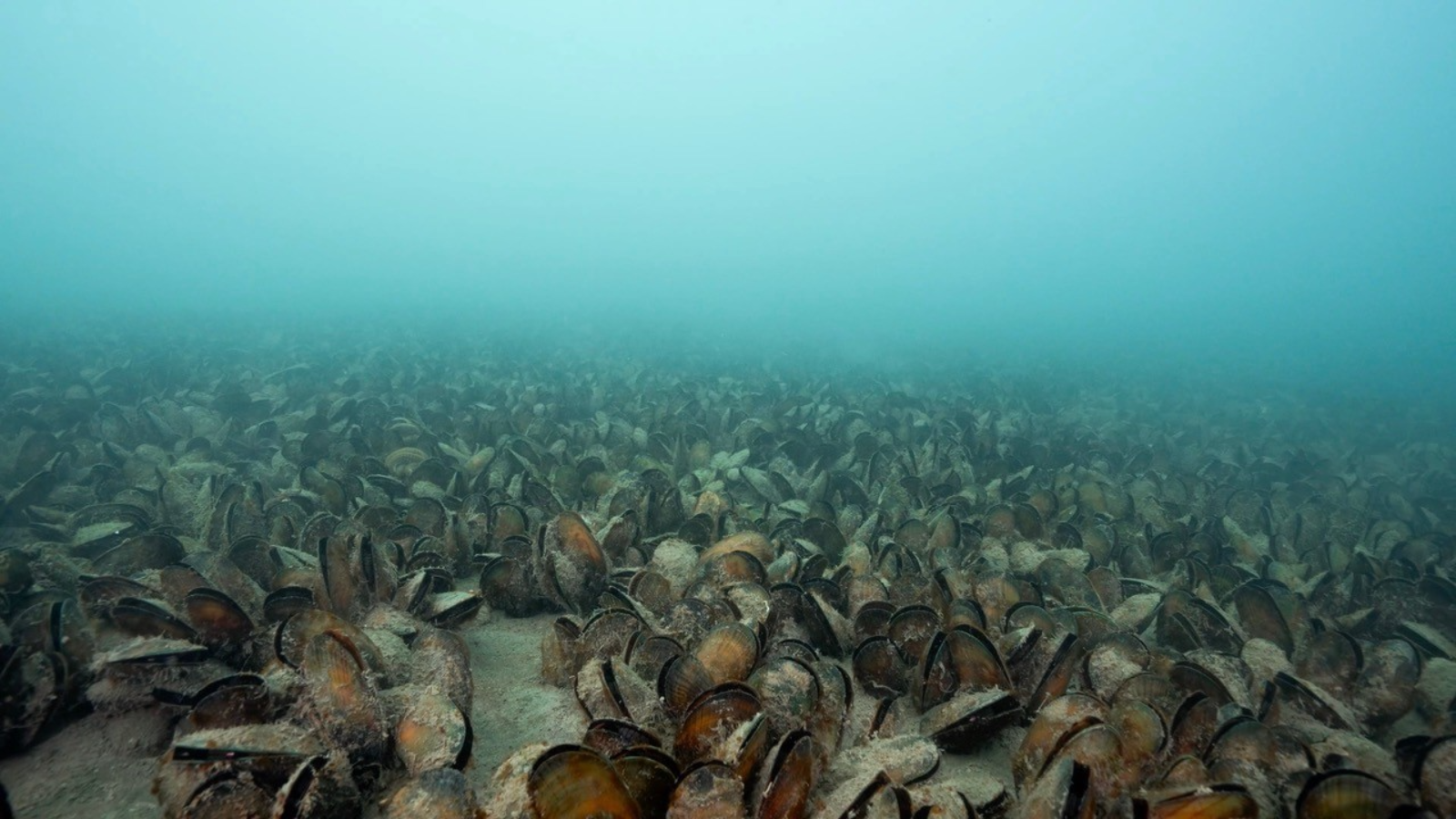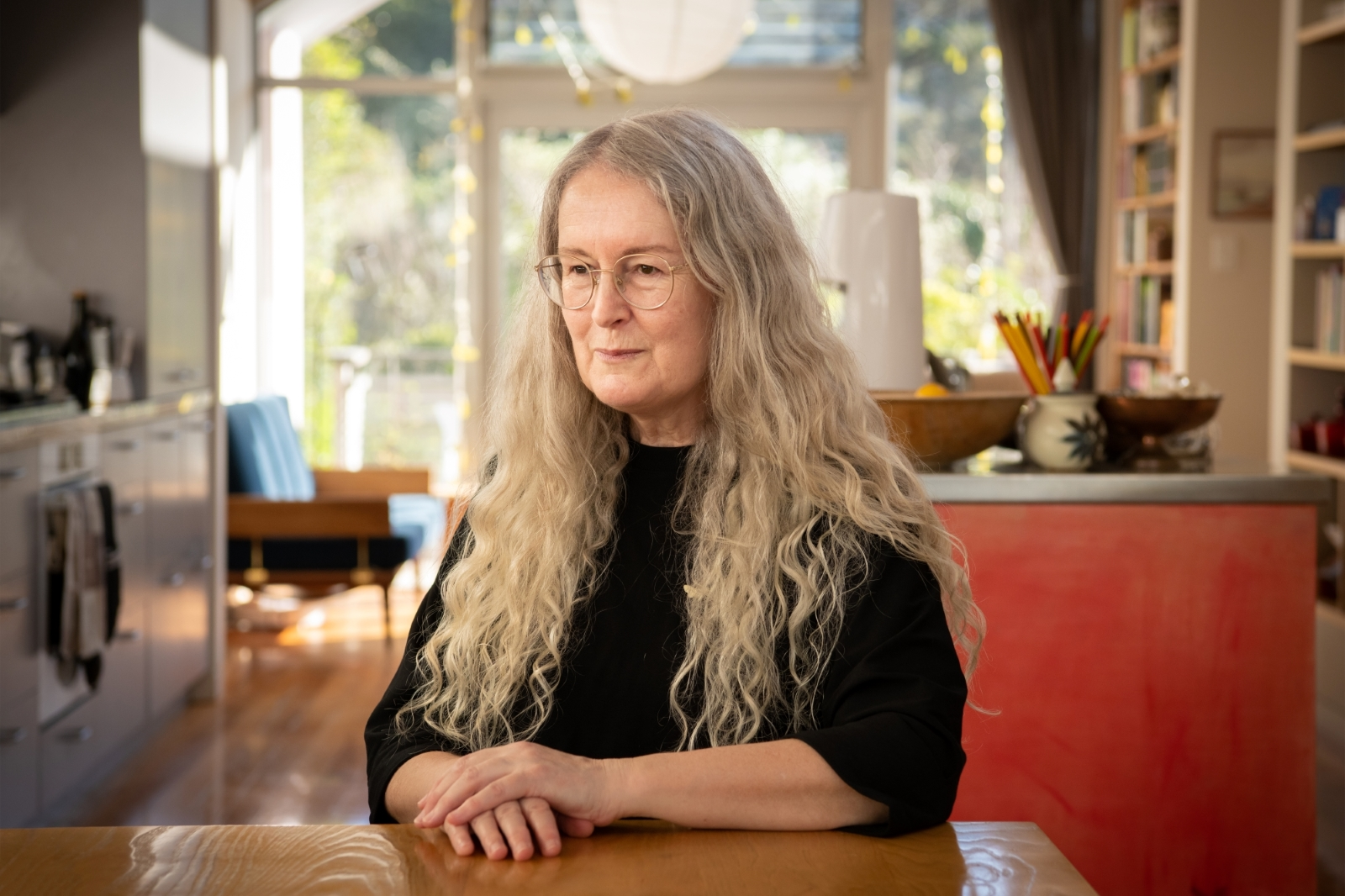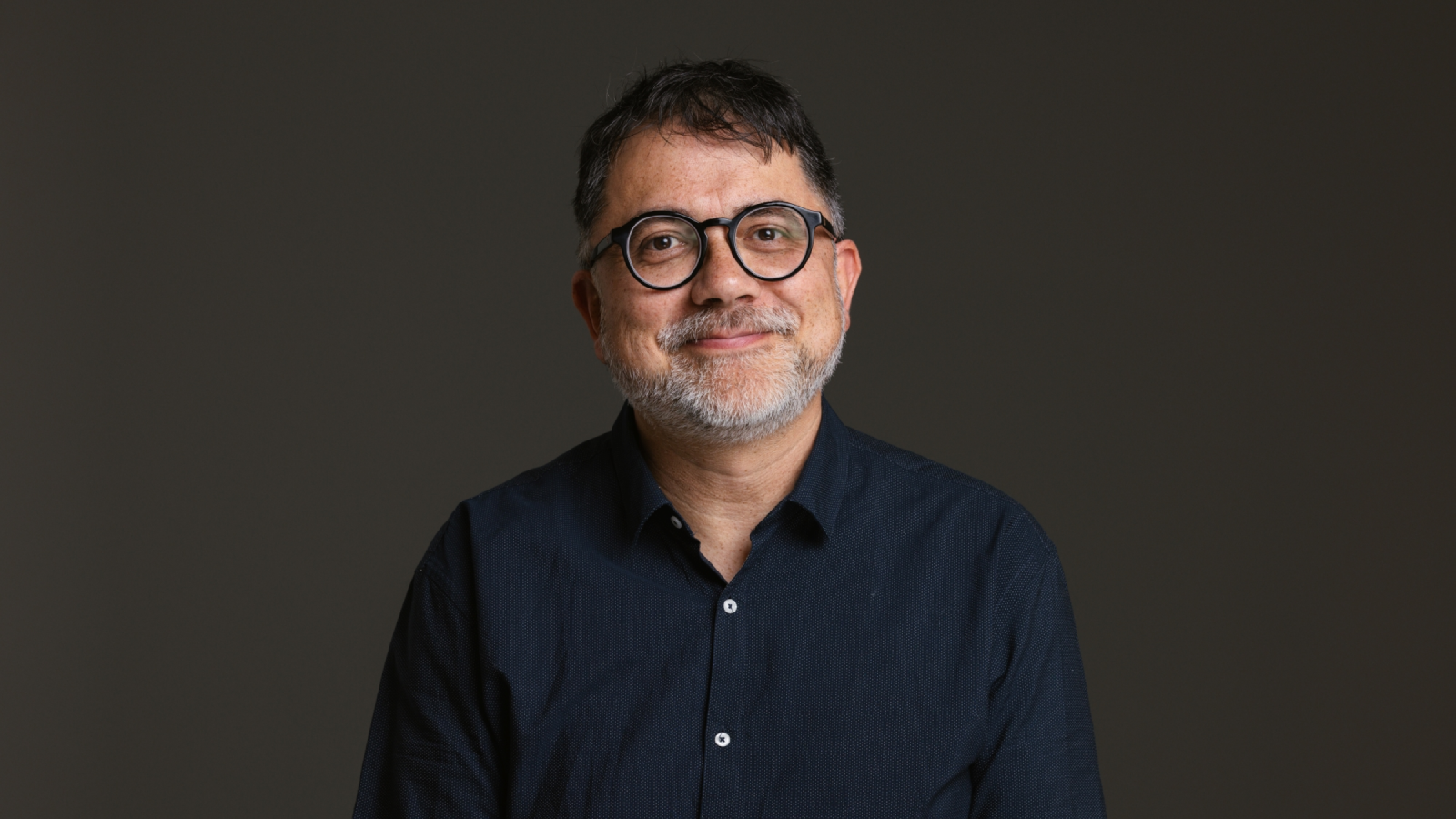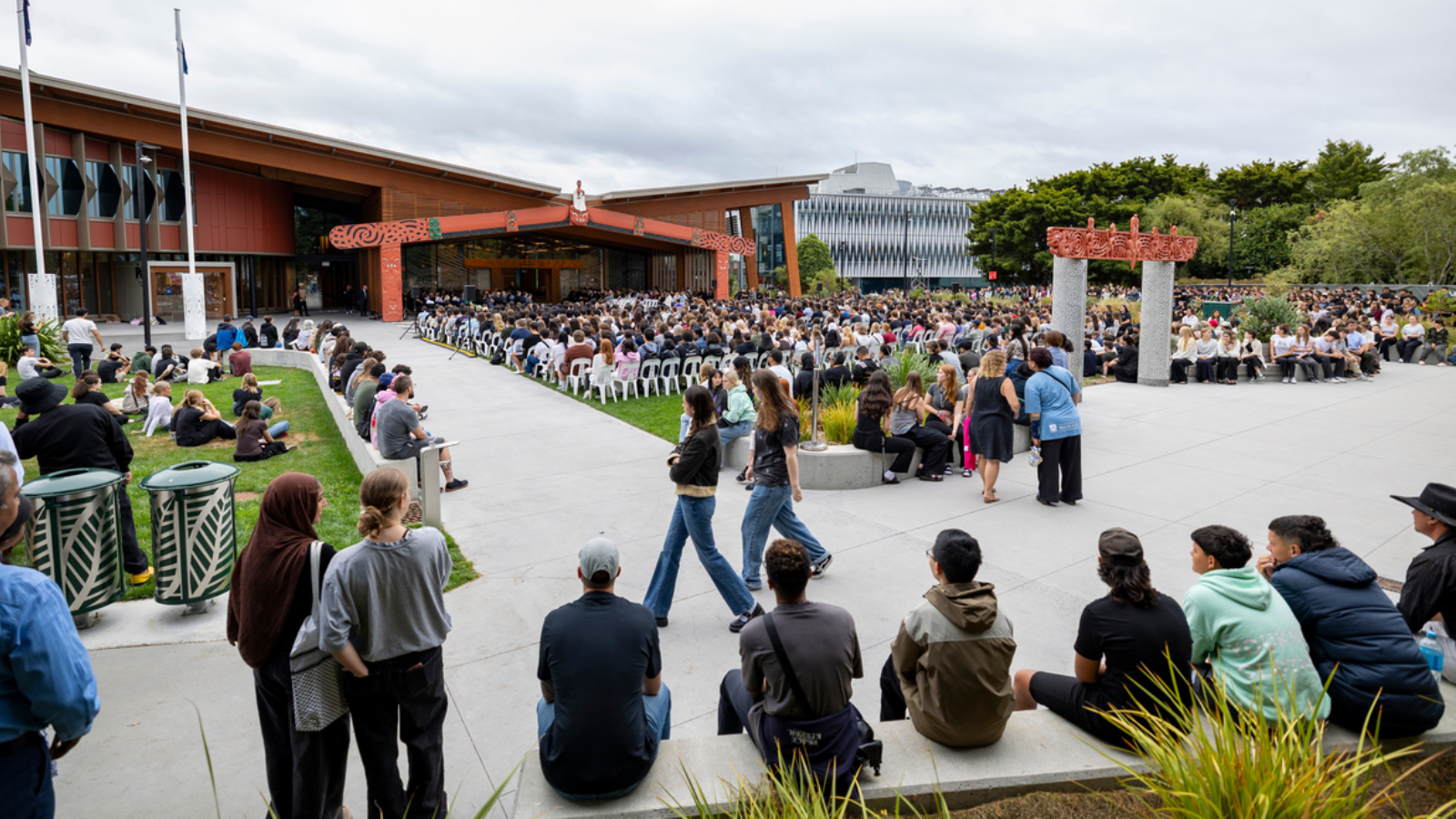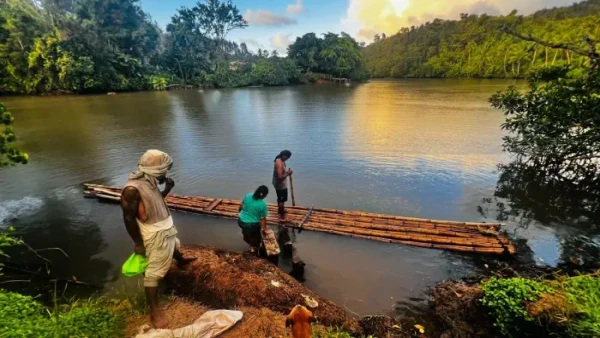
Villagers in Rauriko Village, Dogotuki District, Macuata Province, Fiji prepare to travel to another village to share food.
University of Waikato researchers have co-authored a chapter in a groundbreaking climate change report that gives a voice to Pacific researchers and communities, sharing how they are adapting and proactively responding to climate change.
The Pacific Ocean Climate Crisis Assessment (POCCA) project, led by Te Whare Wānanga o Waitaha, University of Canterbury, and the University of the South Pacific, brought together over 100 researchers and community experts from across 16 Pacific countries and territories to document the region’s resilience and adaptation strategies in the face of escalating climate challenges.
University of Waikato Assistant Vice-Chancellor Pacific Dr Keakaokawai Hemi says the report challenges prevailing portrayals of Pacific communities as passive victims of climate change, instead highlighting their enduring resilience.
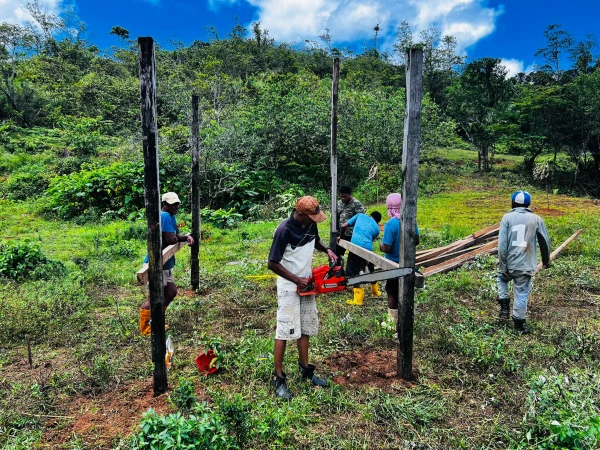
Villagers put up frames for a poultry shed in Rauriko Village, Dogotuki District, Macuata Province, Fiji.
The study found that a range of climate adaptation strategies are already being employed across the Pacific region, including relocating households and villages. It also provided an analysis of climate change impacts, responses and adaptation strategies in the region using multidisciplinary approaches from natural science, social science, humanities and Indigenous knowledge.
Dr Hemi says the report also critically addresses frequent misrepresentations in climate research narrating Pacific people as vulnerable rather than as individuals and communities actively working to prepare and address challenges.
“This report sets the record straight, showcasing the commitment of Pacific communities to protecting their ancestral homes and environments and their proactive and resilient approaches to climate adaptation,” says Dr Hemi.
She says Pacific peoples’ resilience is deeply rooted in millennia-old cultural practices and interconnected ecosystems already being managed sustainably by Pacific communities.
“Pacific people are often minimised in narratives of climate change, but this report underscores the strength and adaptation strategies already in place. The work that is already happening to adapt is informed by generations of traditional knowledge,” says Dr Hemi.
“We highlighted cultural concepts and used Pacific narratives and languages to explain the resilience strategies communities are already using,” says Dr Hemi.
Waikato co-authored the chapter with Siautu Alefaio-Tugia from the University of Otago, Patrina Dumaru from the Institute of Geological and Nuclear Sciences Limited New Zealand (GNS Science), Nii-K Plange from Fiji National University and Shaun Williams from the National Institute of Water and Atmospheric Research New Zealand (NIWA).
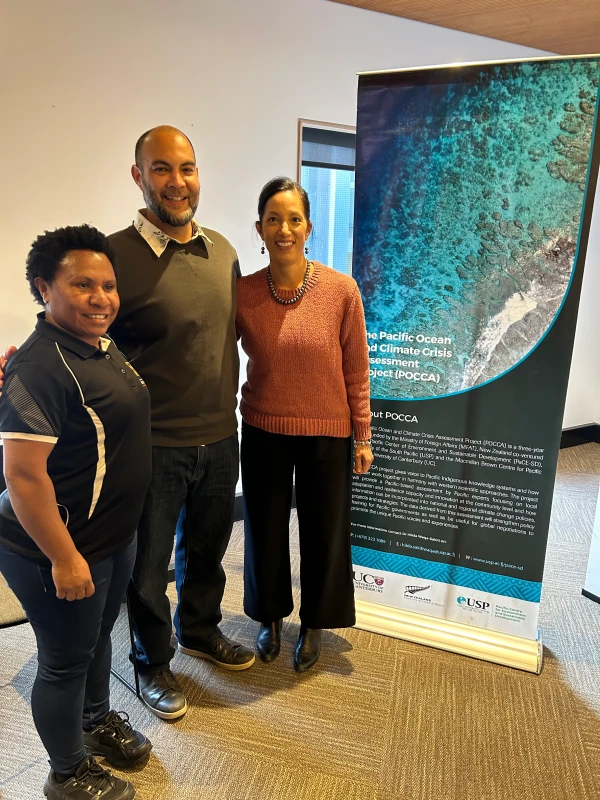
Dr Hennah Steven, Dr Shaun Williams of NIWA and Dr Keaka Hemi.
Dr Hemi says it talks about the connectedness of human –in-nature ecosystems, which continue to be the basis of many Pacific communities.
“They run from the mountains through the forest, down through the wetlands, to the beach, and to the reef, and beyond. And everybody takes responsibility for that.”
Dr Hennah Steven is another co-author on the chapter and says in Papua New Guinea, where she comes from, there are annual droughts that have been lasting much longer across the seasons.
“Our work is documenting how people survive and adapt to these changes, which is very important to be documented for our upcoming generation so that they know the things that will work in years to come,” says Dr Steven.
“People who are living the effects of climate change know what they need to adapt; it’s no good people coming from the outside thinking they know the answers.”
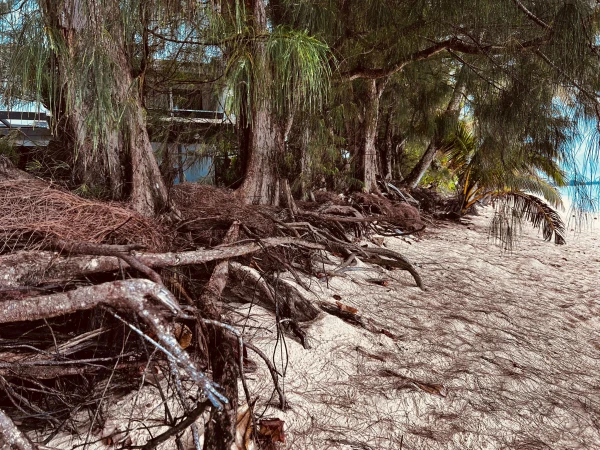
Exposed tree roots are evidence of beach erosion.
The report covers 16 Pacific Island countries and territories, including often-overlooked regions like Papua New Guinea, Solomon Islands, and Vanuatu. It was funded by the Aotearoa New Zealand International Development Cooperation Programme and represents one of the most inclusive research efforts in the region to date.
Researchers from disciplines across meteorology, sociology, and Indigenous studies collaborated, ensuring a comprehensive approach to the study of climate change impacts and adaptation in the Pacific.
Dr Hemi says the report’s findings aim to serve as both a resource for Pacific communities and a guide for policymakers.
“By emphasising critical local voices and indigenous and local knowledge systems, the report provides a blueprint for effective investment and decision-making for climate adaptation in the Pacific,” says Dr Hemi.
“If we want to invest funding in effective ways, we need to listen to the people in these communities.”
The report was presented at COP29 in Azerbaijan in November 2024 and is expected to inform future Intergovernmental Panel on Climate Change (IPCC) assessments. It can be accessed in full on the University of the South Pacific website.
